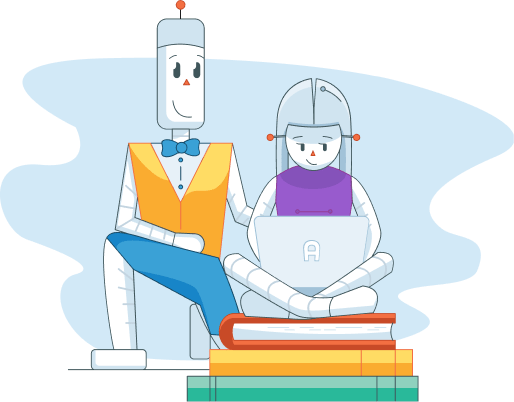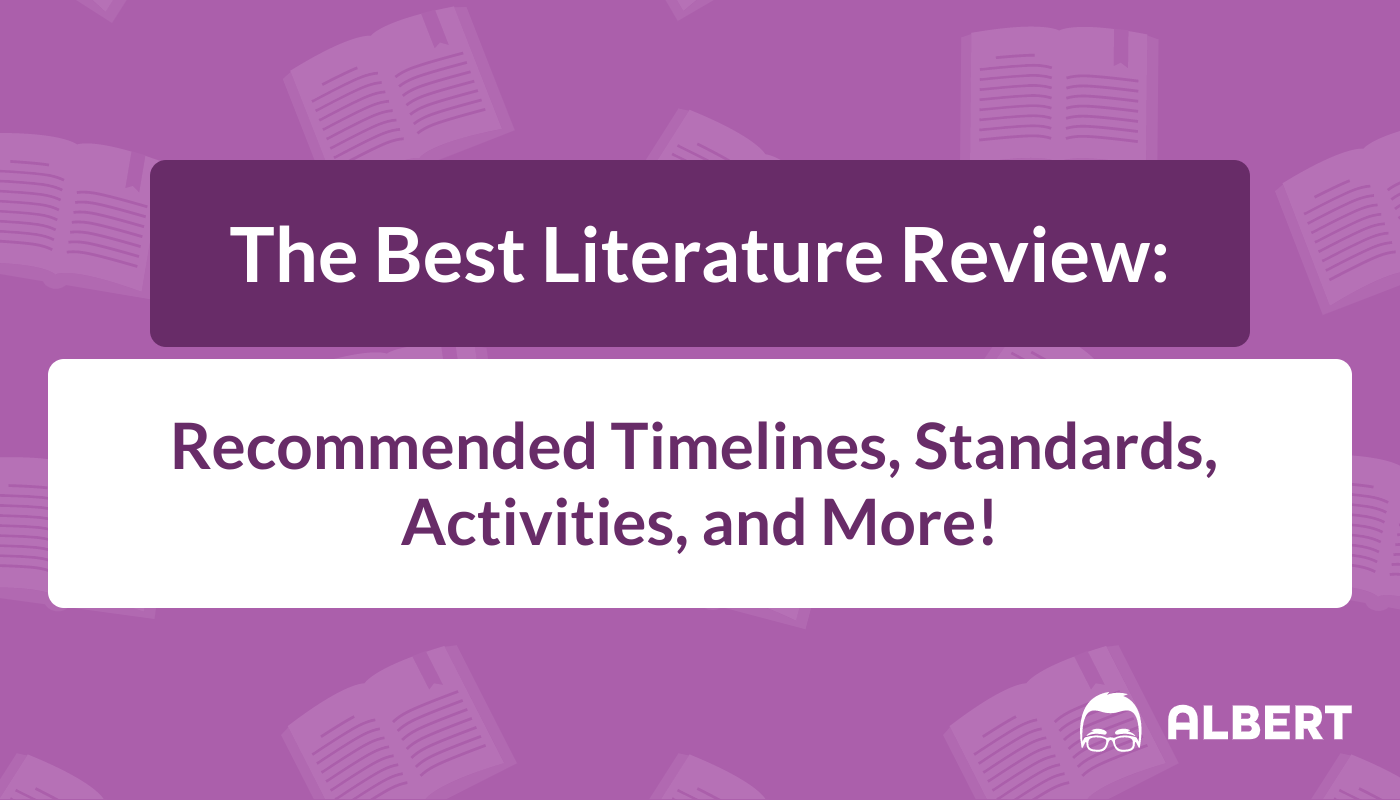Literature
The Best Literature Review: Essential Questions, Standards-Alignment, Activities, and More!
Explore our collection of Literature 101 articles to help with teaching and reading literature. Our easy-to-follow guides are perfect for use at home or in your classroom!

Subjects
The Great Gatsby
Explore all aspects of this classic novel by F. Scott Fitzgerald.
Lurching from one lavish event to the next, the careless sybarites of Gatsby's world make their home in the space between parties.
How do each night's festivities serve to advance the plot, and what is Nick's role — as watcher, chronicler, enabler, and ultimately friend — in the hedonistic mess of East Egg and its aspirational foil, West Egg? In his confrontations with "careless people" of dubious morality, how does Nick change? More importantly, do his interlocutors change, even in small ways? By the final chapter, what case can you make for the stunting and anesthetizing effects of wealth?
Explore these questions and more with our comprehensive review guides.
Fahrenheit 451
Explore all aspects of this dystopian work by Ray Bradbury.
Explore the meaning and importance of literacy with questions on dystopian conventions and the upper bounds of human endurance.
Bursting with symbolism, Fahrenheit 451 has a lot to say about grand ideas like death, pleasure, intellectualism, and censorship. In what ways is Bradbury's world an exaggeration of our own? Consider the characters' hedonism, anti-intellectualism, and refusal to engage with painful events. What dangers and ironies does Bradbury's novel illuminate — and what critique does it offer of modern society and its repressions and discontents? How does Bradbury pave the way for the possibility of redemption, and how does he wield language to illustrate the perils of complacency and conformity?
Explore these questions and more with our comprehensive review guides.
Hamlet
Explore all aspects of this classic play by William Shakespeare.
Madness. Loyalty. Political upheaval. Social anxiety. Though written over 400 years ago, Hamlet reflects timeless concerns.
How does Shakespeare use the play within a play to propel the action? Is the ghost real, or just in our protagonist's head? And what does Hamlet's disdain for his uncle and his mother suggest about his concept of family and his view of women? What does it mean for Hamlet "to be?"
Explore these questions and more in our comprehensive review guides.
1984
Explore all aspects of this dystopian work by George Orwell.
Redefine your understanding of "government control", focusing on themes on surveillance, censorship, fear, and compliance.
Pay close attention to the way Orwell uses language to create an atmosphere of dread and suspense as Big Brother's stranglehold on its citizens grows ever tighter. This novel should inspire you to ask yourself about each person's complicity in their own oppression — and to fully understand what it means to rebel against a highly regimented society that controls and represses its citizens by any means "necessary."
Explore these questions and more with our comprehensive review guides.
Frankenstein
Explore all aspects of this classic novel by Mary Shelley.
Delve into questions of morality, Gothic conventions, and what it really means to be human with this classic novel.
How does Frankenstein function as a representation of the Romantic genre, and how can it be read as a polemic against the events of the day? How does Shelley utilize traditional narrative structure to illustrate her protagonist's change, and what comment does she make about the importance of humility, anchoring relationships, and kindness — both to ourselves and to the things that we create?
Explore these questions and more with our comprehensive review guides.
Content coming soon!
Romeo and Juliet
Explore all aspects of this classic play by William Shakespeare.
Review timeless themes of love and anguish with questions on character motivation and figurative language.
Arranged marriages. Family feuds. Rigid social conventions. Lavish parties. "Thumb-biting." Careless murder. Exile. A priest, a Prince, and a feverish plot. Discover for yourself the world of "fair Verona" — and the fissures on its surface that allowed two teenagers to hijack the fate of a city.
Explore these topics and more with our comprehensive review guides.
Content coming soon!
Macbeth
Explore all aspects of this classic play by William Shakespeare.
Explore questions of ambition, gender, literary theory, and dramatic convention.
Macbeth is famous for its masterful interweaving of political machination and madness. Contemplate how Shakespeare manages to set up a prophecy, start a war, reverse the power dynamics of Scotland, push his characters towards madness, and flip the power dynamics back again — all in five short acts. How does the structure of the play propel the action?
Explore these questions and more with our comprehensive review guides.
Content coming soon!
Things Fall Apart
Explore all aspects of this debut novel by Chinua Achebe.
Delve into themes of post-colonialism, identity, and political fracture with Chinua Achebe's definitive English-language African novel.
Chinua Achebe brings to life a culture no less complex than that of its European interlopers, detailing with a clear and sympathetic eye the complex social structures, linguistic nuances, and religious rituals of a society in crisis. In what ways does Achebe's beautifully-realized novel function as political protest?
Explore these questions and more with our comprehensive review guides.
Content coming soon!
Their Eyes Were Watching God
Explore all aspects of this Harlem Renaissance classic novel by Zora Neale Hurston.
Explore themes of gender, race, and class with questions on Zora Neale Hurston's lyrical language and depictions of the emergent self.
To read Their Eyes Were Watching God without a solid understanding of its social-historical context is to miss its rich cultural resonance. As you consider the literary construction and the major themes of Their Eyes Were Watching God, bear in mind W.E.B. DuBois' assertion that all art is propaganda — and that African-American art, in particular, should work to "uplift" and combat stereotypes. In what way does Their Eyes Were Watching God function as "propaganda" — and in what ways does the fully-realized character of Janie Crawford reject the politicization of a black female identity? In what ways is Hurston's best-known work still relevant and timely in today's English classrooms?
Explore these questions and more with our comprehensive review guides.
Content coming soon!
Interested in a school license?
➜ SAT® & ACT®
➜ AP®
➜ ELA, Math, Science, & Social Studies
➜ State assessments
Options for teachers, schools, and districts.

